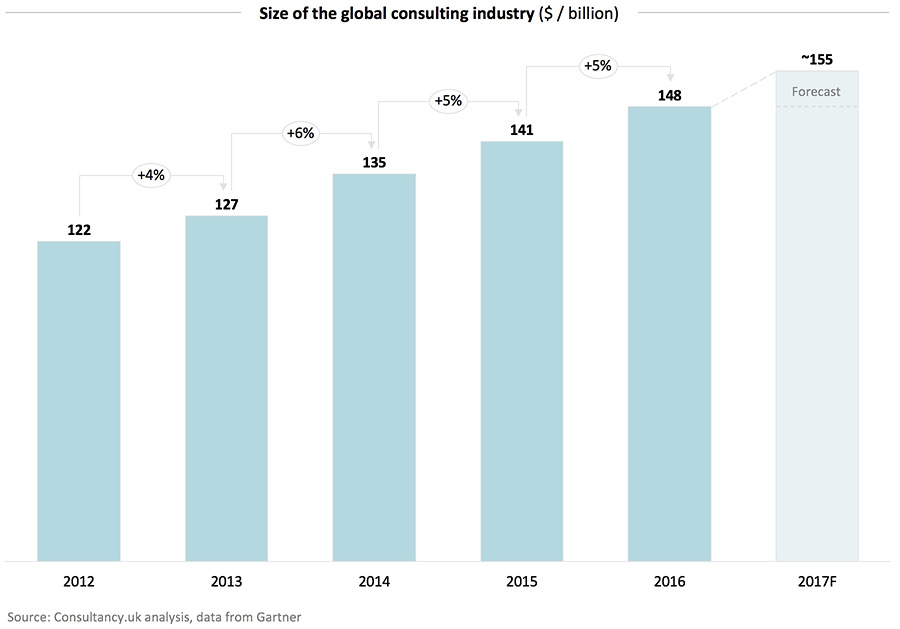
An environmental consultant is a professional that specializes in environmental problems. They can help with compliance and future problems. These professionals perform investigations to determine the level of risk posed by hazardous substances in surface water, groundwater, and soil. They offer advice to clients on how they can minimize risk and avoid costly legal actions.
SQEPs are individuals who minimize risk & put clients in control
SQEP stands for Single Quality Expert Person. They are responsible for identifying, assessing and implementing risk reduction solutions. This individual can assist with a range of environmental, economic, and operational issues. They possess the experience and skills that will minimize risks and allow clients to take control of the process. The Office for Nuclear Regulations (ONR), has developed a Technical Assessment Guide for SQEPs. This guide helps inspectors evaluate the number of SQEPs necessary and determine how to organize their tasks.
SQEPs need to have the ability to work in the particular field or under the supervision and guidance of SQEPs that have the same experience. SQEPs must also be certified to produce PSI or DSI reports. The requirements for SQEP certification are set out in Regulation 3. The Users Guide also offers guidance on how one can determine if a person is a SQEP.

They investigate the risks posed to soil, groundwater, sediment, and surface waters.
A risk assessment is a process that determines whether hazardous substances are present in an environment. The risk assessment evaluates the potential for adverse effects on public health and the environment, as well the extent of exposure.
Risk assessments are often conducted in conjunction with remedial action plans. These plans identify the remedial actions required for a particular site and define the specific risks. They are created after taking into consideration current and future resource and land use, as well as environmental issues and the applicable federal and state laws. The cleanup level must meet or exceed a risk-based standard that is acceptable for the area and its inhabitants.
They can offer many services
Environmental consultants have many specialties. For example, they can help a company with air emission requirements or conduct a detailed site investigation. They can also assist with pollution control equipment design, or prepare annual Michigan Air Pollution Reporting System forms. When it comes to dealings with regulatory agencies, environmental consultants can also be a valuable resource.
Environmental consultants often work from offices or labs, and they may also conduct fieldwork. They must be flexible and adaptable, and capable of working efficiently in a variety of situations. A team of environmental consultants requires them to have excellent communication and project management skills. They should also be able manage files and monitor client satisfaction.

Locate an environmental consultant in your area
An education and experience are required to choose an environmental consulting job. A keen interest in the environment is required. You must also have the ability to carry out field research and analyse scientific data. You should also have good communication and management skills. Many environmental consultancies also offer graduate programs. Volunteering at local environmental agencies is another option. Many consulting firms hire people to provide environmental advice to the public sector and other commercial organizations.
Having a professional environmental consultant on your side can ease the burden of meeting environmental regulations and laws. The work of environmental consulting isn't without its difficulties. The work can be repetitive, and it requires a lot more self-motivation. For instance, dealing with difficult clients may not be an easy task.
FAQ
Is consulting a real job?
Consulting is not only a good entry-level job for people looking to make quick money.
There are many opportunities for consulting, including project management, strategy, training and leadership. You might find yourself working on projects ranging from small start-ups to large-scale international corporations.
Consulting allows you to learn and improve your skills while also gaining experience in many industries. This could be learning to manage people, write proposals and manage budgets, analyze data and create presentations, or conduct market research.
What happens after the consultant completes the job?
After the consultant has completed the work, they will submit a final document detailing the results. This report includes project timelines, deliverables, and any other pertinent information.
After that, you'll go through the report and decide if it meets your expectations. If you are not satisfied with the consultant's report, you have the option to ask for modifications or to terminate your contract.
What qualifications do you need to be a consultant?
Not only is it important to have an MBA but you should also have business consulting experience. You must have at least two years' experience working in consulting and/or training within a large company.
It is essential that you have experience working closely with senior management on strategic development projects. This would require you to be comfortable with presenting ideas and getting buy in from clients.
You will also need to pass a professional qualification test such as the Chartered Management Institute Certified Management Consultant certification (CMC).
What are the types of contracts available to consultants?
Standard employment agreements are signed by most consultants when they are hired. These agreements outline how long the consultant will work for the client, what he/she will get paid, and other important details.
Contracts will also outline the areas of expertise and compensation for the consultant. A contract may state that the consultant will deliver training sessions or workshops, webinars, seminars and other services.
Sometimes, the consultant simply agrees that a specific task will be completed within a set time frame.
Many consultants sign independent contractor arrangements in addition to standard employment contracts. These agreements allow consultants to work independently while still receiving payment.
What skills do I need for consulting?
A consultant should have strong analytical skills as well as interpersonal skills. This is crucial because you might not be able to understand what you are doing when you work on complex projects. This is a must because you need to learn how quickly you can manage people.
Communication skills are essential. Most clients expect to hear back within 24 hours. They assume that you won't respond if they don't hear from them within 24 hours. It's important, therefore, to always keep them informed and ensure they understand what is going on.
Is it possible that a consultant business can be started from home?
Absolutely! In fact, many consultants already do exactly this.
Most freelancers work remotely using tools like Skype, Slack, Trello, Basecamp, and Dropbox. They may even create their own office space in order to take advantage of company perks.
Some freelancers prefer to work at libraries and cafes instead of traditional offices.
Others prefer to work from home as they feel more at home with their families.
Of course, working from home has its pros and cons. It is worth it if you love your work.
What should your consulting fees be?
It depends on what you are offering. If you're providing services for free, there is no reason to charge anything. But if your services or products are for sale, you will need to establish prices that reflect their value.
If you're providing low-quality service, you don’t have anything to offer. So why would anyone pay you anything?
You might be able ask for a more expensive price if your services are of high quality. People recognize the value in you offering. Clients who purchase multiple packages may be eligible for discounts.
Statistics
- WHY choose me: Why your ideal client should choose you (ex: 10 years of experience and 6-week program has helped over 20 clients boost their sales by an average of 33% in 6 months). (consultingsuccess.com)
- On average, your program increases the sales team's performance by 33%. (consultingsuccess.com)
- "From there, I told them my rates were going up 25%, this is the new hourly rate, and every single one of them said 'done, fine.' (nerdwallet.com)
- Over 62% of consultants were dissatisfied with their former jobs before starting their consulting business. (consultingsuccess.com)
- According to statistics from the ONS, the UK has around 300,000 consultants, of which around 63,000 professionals work as management consultants. (consultancy.uk)
External Links
How To
How do you find a good advisor?
It is important to understand what you are looking for in a consultant before you can find one. Do you want them helping you improve your website's performance or not? You may want them optimizing your site to rank higher for search engines. You might also want someone to help you determine if your hosting provider is in trouble. Once you know what type of services you need, you should start looking at different companies. Although there are many consultants who claim to offer these services, very few of them can actually provide the required results. How do you select the right consultant for your project? Here are some things to consider when picking a consultant:
-
Ask for referrals. This is probably the best way to choose a consultant. Because you are likely to pay too much, you shouldn't hire someone who you have never heard of. However, you shouldn't work with someone with poor reputations. You're fortunate enough to receive referrals from people you trust. However, even if this is not possible, you might still be able check reviews online. You can find testimonials and case studies from clients who have used your service.
-
Ask around. Many people don't realize that consulting could be beneficial for them. They think that since they're currently doing fine, they don't need to make changes. This is often false. Even if you are seeing great results, it is likely that you have not been keeping up to date with technology and trends. Your business could be missing out if it relies on outdated methods. It's always worth asking for referrals to find good consultants.
-
Be sure to check their credentials. You need to verify their qualifications when you are searching for a consultant. It doesn't matter if they are qualified for the task or not; make sure they are knowledgeable in the field.
-
Find out what type of projects they are skilled in. While you might assume that everyone can handle everything, this isn't true. You may need to have specific training or education in certain areas. You won't hire a Drupal developer if you need to build a WordPress template. It is the same for programming languages, graphic design, and so on. It is important to inquire about the types of projects that they work on.
-
It is important to know what the charges are. As we mentioned, it is important to know what they charge. You also don't want too much. There are many types of consultants. Some charge hourly rates while others bill per project. You will save money if you know exactly what you're going to pay upfront.
-
Know what they offer. Are they willing to provide free consultations? They will be able to offer you guidance on setting up your own system. Are they able to guarantee that your site will rank better after working with you? You have the right to cancel at any time if you aren't satisfied with what was said during your consultation.
-
Find out if the company offers discounts for several months or years. Many consultants offer extended discounts for long periods. While you don't necessarily need to commit for a whole year, you can still take advantage of any deals that they offer.